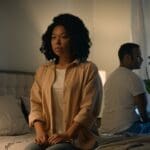Who says therapy can’t be fun? Recreation therapy taps into the often-forgotten joy of play. Whether it’s art, music, or a favorite sport, these activities do more than just lift your spirits—they rewire your brain in a way that promotes long-term wellness. At Raleigh Oaks Behavioral Health, patients have rediscovered passions they thought were lost to depression, anxiety, and other mental health challenges. Join us to learn how a paintbrush, guitar, or yoga mat can be a powerful therapeutic tool.
About Recreation Therapy
Recreation therapy, sometimes called therapeutic recreation, is a form of mental health treatment that uses recreational activities to improve and maintain well-being. It is a recovery-oriented approach to treating mental health disorders that focuses on building the skills that promote healing and personal growth.
Recreation therapy can take many forms, but some of the most common include:
- Arts and crafts. Creative projects like painting, drawing, or knitting.
- Exercise. Sports, yoga, walking, or other forms of physical activity.
- Music and dance. Playing instruments, singing, or dancing.
- Nature activities. Gardening, hiking, or outdoor exploration.
- Games. Board games, card games, or interactive group games.
- Drama or role-playing activities. Acting out scenarios to practice social skills or process emotions.
Traditionally, recreation therapy has focused on face-to-face activities. Recently, however, researchers have begun to explore online ways to offer support to people with mental health disorders and found this can be beneficial as part of a person’s continuing care plan.
In a November 2021 paper published in the Journal of Psychosocial Rehabilitation and Mental Health, Aarti Jagannathan et al. looked at the effectiveness of different forms of recreation as a therapeutic treatment for adults diagnosed with mental health disorders (MHDs). They concluded, “Recreation is an important need of clients with MHDs as it helps them to be engaged, be happy and provides a platform for socialization; irrespective of whether it is conducted online or offline.”
5 Key Benefits of Recreation Therapy
Recreation therapy isn’t a quick fix, but it can be quite effective when used as part of a comprehensive treatment program that includes cognitive behavioral therapy, medication management, and life skills training. Every person’s experience is unique, but let’s take a general look at some of the potential benefits associated with this treatment approach.
- Creating a Safe Space for Social Interaction
Mental health struggles can leave you feeling isolated, but recreation therapy excels at breaking down those walls. Group activities create a safe space for social interaction, helping you forge meaningful connections with others who understand your struggles and can support you on your path to healing. If you have a dual diagnosis, having a chance to make new friends who won’t push you to drink or use is especially important.
- Boosting Self-Esteem Through Achievement
Low self-esteem often accompanies mental health issues, but recreation therapy provides countless opportunities for small victories. Learning a new skill or improving at a hobby delivers a potent shot of confidence that carries over into other aspects of your life. For example, watching your skills as a painter continue to improve can inspire you to step outside your comfort zone and come up with creative solutions for problems you’re facing at work or school.
- Offering an Alternative Path to Mindfulness
While seated meditation can be challenging for some, recreation therapy offers alternative paths to mindfulness. Activities like gardening, drawing, dancing, or taking cooking classes become moving meditations that teach you to stay present and focused. If you’re curious about what this looks like, Marcus Bridgewater has a first-person essay looking at the meditative benefits of gardening on his Garden Marcus website.
- Reclaiming Your Narrative
Mental health challenges can make you feel like a passive observer in your own life story. Recreation therapy puts you back in the driver’s seat. Through expressive arts and storytelling activities, you’re encouraged to explore and reshape your personal narrative. This can be especially beneficial if you’ve experienced past trauma that you find difficult to discuss in traditional group or individual therapy sessions.
- Building a Foundation for Real-World Recovery
One of the most significant benefits of recreation therapy is its real-world applicability. The skills and coping mechanisms you develop through these activities become part of your daily life. For example, you might find yourself using deep breathing techniques learned in yoga to manage work stress. Or, you might discover that applying the teamwork skills from group sporting activities to your relationship with your spouse and children helps to reduce conflict and miscommunication.
Get the Help You Need to Move Forward
Taking the first step toward mental health treatment can feel daunting, but it’s also the beginning of an incredible journey of self-discovery. At Raleigh Oaks Behavioral Health, we believe that seeking help is not a sign of weakness—it’s an act of courage and self-love. The innovative treatment programs offered at our Garner, North Carolina, location offer you a comprehensive path to recovery. Contact us today to learn more.





